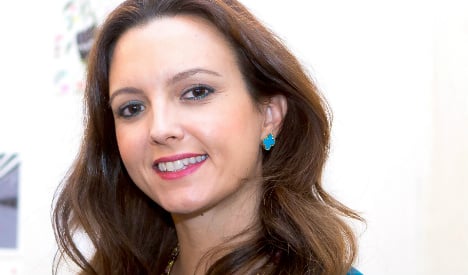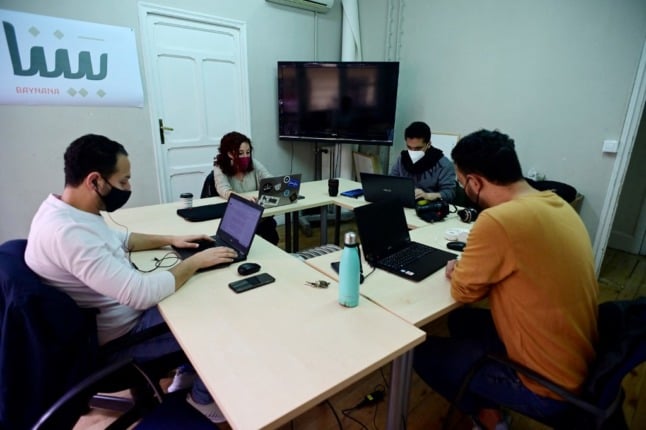What brought you to Spain?
I’m originally from Wisconsin but spent sometime living in Quito, Ecuador. After I finished studying and began work I could never shake the nagging feeling that I needed to live abroad again. I knew that moving to Spain would help me improve my fluency and gain further international experience for a career in higher education, but I had no idea how much of an impact on my life and career it would actually make!
What are the good and bad points about working in Spain?
My experience as an international entrepreneur has not always been an easy road. It takes time to adjust to the culture, to understand how the system works and to learn a new language. Compared to the US the pay is lower, organizations are more hierarchical, there is a lot of bureaucracy and it’s hard to be given a lot of responsibility and have possibilities to ascend in your job, but in a startup the work culture is very different.
Despite the fact that the pay might be low, the cost of living in Spain is way cheaper than in the US and people here really value a much healthier work-life balance. Also, I learn something new everyday, I’ve become bilingual working in both English and Spanish, and I stand out as foreigner- but in a good way.
What inspired you to set up VIVA Innovation Academy?
My business partner Kelly Coogan and I came up with the concept after we became frustrated that almost all of the expats we met who were transitioning abroad complained about their third party providers offering sub-par, low quality logistics and support.

Kelly Coogan (L) and Carly Mattefs founded the business together. Photo: Katariina Pajunen / www.annaprimavera.com
Kelly and I voluntarily cleaned up many messes and dealt with everything from stolen wallets to housing emergencies to burst appendices for many expats whose providers didn’t take care of them when things went wrong.
Being expats ourselves and having both studied abroad, we understand how important it is to have the proper support and guidance abroad and the lack of it can easily make or break your experience. We knew we had to create a program that promised a quality experience for expats’ transitioning abroad.
The second reason is that, as educators ourselves, we saw that there was no current competency-based educational model that prepared young adults to be creative, innovate and develop entrepreneurial skills while abroad.
We saw the need for students to have more real-world, hands-on experience through learning, practicing, and solving real world problems so that they could become globally competent and be prepared to enter the 21st century global workplace. So we decided to create a program that addressed all these needs.
Tell us a bit about your VIVA Startup Bootcamps.
Our VIVA Startup Bootcamps offer everything from building prototypes and pitching to mentoring and networking lunches and includes workshops such as ‘Design Thinking Crash Course’, ‘Studentpreneur: Turn a Crazy Idea Into a Real Startup, ‘Startup Now!: How to Create Your Lean Canvas’, and ‘The Perfect Pitch: Demo Day Style’ to name a few. We also offer other VIVA Bootcamps such as the VIVA Leadership Bootcamps and the VIVA Future Consultants Bootcamps.
What advice would you give young people on getting into startups?
My one piece of advice is; intern first.
It’s such a unique, eye opening experience to be able to work directly with founders and make a huge impact in a growing startup.
Learn before you earn; If you think you might want to have your own business one day, its much easier and cheaper to learn the ins and outs of startup life as an intern, so that you have already had first-hand experience starting up when you want to create your own venture.

Photo: VIVA Innovation Academy
Why is Madrid a great place for young people to come to get involved with startups?
The economic crisis has forced people to innovate and create their own jobs. It has sparked this entrepreneurial movement and creative spirit, and so Madrid is a great place to be right now. And let’s not forget about the amazing Spanish food, wine, weather, and numerous travel opportunities throughout Europe that young people cannot get enough of!
Young people who work or intern in startups have the unique opportunity to make a difference in a less saturated market. Also, the startup community here in Madrid is amazing. There are a lot of great events such as the South Summit or Zinc Shower that take place in Madrid and the resources at your disposal are countless.
When it comes to startups how does Spain compare to the US?
Being an American in Spain brings the advantage of a unique perspective to solving problems and creating businesses that provide products and services that don’t yet exist here in Spain. Plus the market in Spain is less saturated than it is in Silicon Valley or the US in general, and being foreign you can actually use it to you advantage. Consider that you have something unique to offer and see it as an opportunity to stand out.
To find out more about VIVA Innovation Academy, visit the website or Facebook page. Or follow them on Twitter, Instagram or Linked In.



 Please whitelist us to continue reading.
Please whitelist us to continue reading.
Member comments